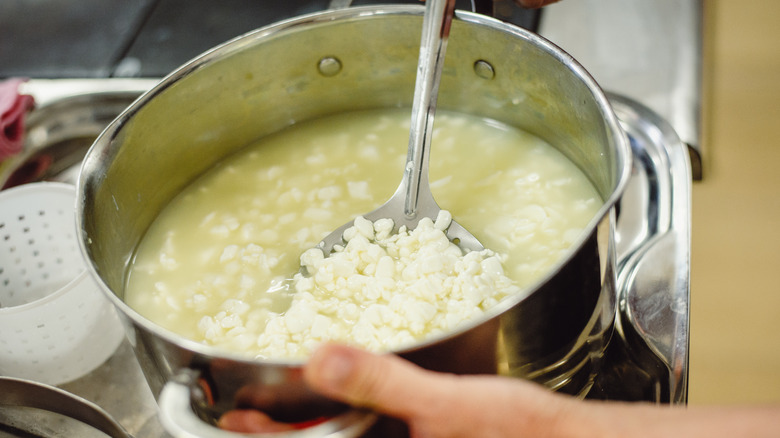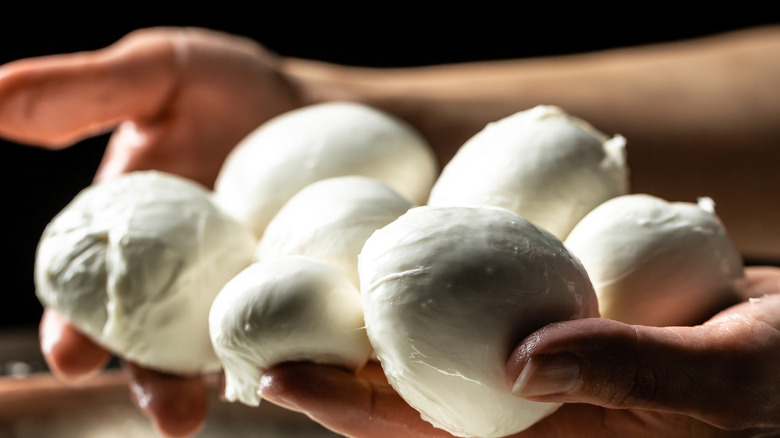Can Pasteurized Milk Be Used For At-Home Cheesemaking?
Long before the days of mass refrigeration, one of the many ways dairy farmers or those with the family cow would preserve their milk harvest was to make cheese. According to the National Historic Cheesemaking Center, the American-cheesemaking tradition started with the colonists arriving in New England, and slowly moved westward to New York, Ohio, and Wisconsin as the nation grew larger and more populated. In the days before Louis Pasteur and the discovery of pasteurization, the type of milk used to make cheese is what's known today as raw milk, per the FDA. Raw milk is untouched, directly from the cow, and decidedly unpasteurized. Pasteurizing milk is the widely accepted industry standard for what is considered "safe" milk to drink.
As a result, unless you live in a state that has not outlawed the sale of raw milk, the milk you're going to find on store shelves is pasteurized. You can make cheese from pasteurized milk, but the level of pasteurization will likely determine the kind of cheese you are able to make. Interestingly, the reason for this is that the amount of pasteurization is highly connected to the amount of curd your milk will produce. And it's curds that make the cheese.
Levels of pasteurization & cheese type
According to Organic Valley, there are two different levels of pasteurization: High Temperature Short Term (HTST) or Ultra Pasteurized (UP). HTST is defined as milk that is heated to 161 degrees Fahrenheit for 15 seconds, killing any potentially harmful organisms in the process. On the other hand, UP milk takes it a step further by increasing the heat to 280 degrees, but only leaving it that high for two seconds. This heat destroys practically all bacteria, good and bad, that were present in the milk. Although this process may seem even safer, it actually leaves the product unusable for cheesemaking as the high heat alters the proteins in such a way that they are not able to form curds properly.
There are still varying qualities of pasteurized milk. The type you want for cheesemaking, according to New England Cheese Making Supply Co., is a high-quality, pasteurized milk that has good flavor and is sourced as locally as possible. Recommended starter cheeses made from pasteurized milk include ricotta and mozzarella, as they are simple to make and typically eaten fresh. The more comfortable you get with your cheesemaking, the more aged cheeses, like cheddar, you'll be able to try. Practically all commercial cheese, unless otherwise stated, is made using pasteurized milk, per BabyCenter. It, therefore, stands to reason that you should be able to use it to make your own cheese at home.

